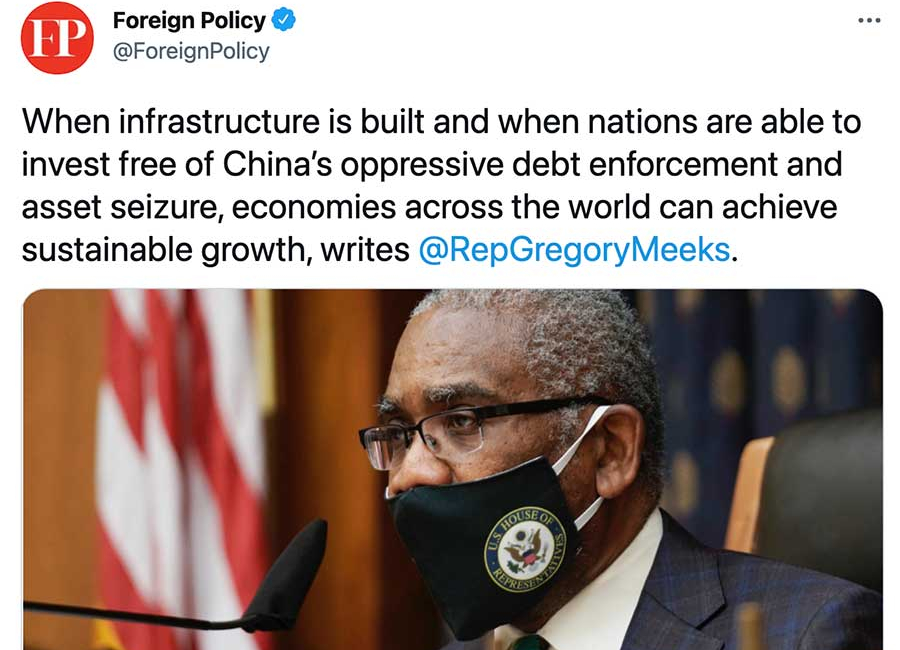“The Build Back Better World Partnership Could Finally Break the Belt and Road” screamed the headline on the Foreign Policy website today, giving voice to the newfound sense of confidence in the DC policy universe that after years of flailing, the U.S. is finally in a space where it can mount a credible challenge to the BRI.
Representative Gregory Meeks, chairman of the powerful House Foreign Affairs Committee, made the case today in that provocatively titled Foreign Policy column where he echoed many of the same talking points that we’ve heard from the Biden administration for months about the opportunity to provide developing countries with an alternative to China by building infrastructure that’s “high-standard, transparent, and environmentally and financially sustainable.”









